Tackling Environmental Challenges Through Sustainable Entrepreneurship
Impacting People, the Planet, and Profits
At Bethesda Green’s Innovation Lab, we are constantly on the lookout for leaders who are building for-profit business models around innovative and sustainable solutions to tackle environmental and social challenges.
This summer, we once again welcomed founders, industry experts, and policy makers for a series of conversations to inspire, motivate, and educate all who attended.
Scroll down for information on each panel, speaker bios, links to the recordings, and summaries of each session.

Series #1: Building Sustainable and Ethical Supply Chains
Session #1 – Building Resiliency into Your Sustainable Supply Chain
Read the Summary.
View the session on YouTube.
Global supply chains are increasingly vulnerable to disruptions stemming from climate change, natural disasters, and other global crises. How can entrepreneurs protect their businesses and ensure long-term business continuity by building resiliency into their supply chains? We will hear from industry leaders about the mechanics of an agile supply chain that can predict and swiftly respond to shocks of all kinds.
Panelists:
- Anastasia Stromgren – Senior Transportation Specialist, Starbucks
- Maurice Nick – Supply Chain Optimization Manager, Tata Consumer Products
Session #2 – Considerations for Startups Applying Sustainability Principles in Their Supply Chains
Read the Summary.
View the session on YouTube.
Hear from industry experts about actions an entrepreneur can take to build sustainability principles into their startup’s supply chain, such as responsible material selection, sourcing, product design, packaging, and waste management. We will explore the social, environmental, and financial costs and benefits of integrating sustainability into your supply chain, or choosing not to, and how these considerations evolve as you scale up your company.
Panelists:
- Dr. Aurora Dawn Benton – Founder, Astrapto
- Verena Radulovic – Vice President of Business Engagement, Center for Climate and Energy Solutions (C2ES)
Series #2: Measuring Impact and Managing Risk
Session #1 – Understanding the Role of Sustainability Reporting Frameworks in Impact Investing
Read the summary.
View the session on YouTube.
How do impact investors make impact investment decisions and measure the impact of their portfolio? Which sustainability reporting framework (GIIN, IRIS, SASB, TCDF, etc.) is right for your business? Prepare your company to communicate its successes to investors and other stakeholders using data-driven metrics.
Panelists:
- Catherine Griffin – Founder, ImpactableX Analytics
- Darius Nassiry – Director, Climate Finance Advisors
- Jennifer Woofter – Founder and President, Strategic Sustainability Consulting
Session #2 – Green Business Certifications: Which One and Why?
Read the Summary.
View the session on YouTube.
Consumers are demanding more from their companies – and investors are too. Obtaining a green business certification builds brand loyalty for customers and makes your company a more attractive investment option. Today we will hear from experts about the different types of green business certifications and their respective benefits.
Panelists:
- Julia Craighill – Founder and President of Ensight
- Kim Goddu-Alexander – Director of Be Green Living and B Corp Initiatives, Bethesda Green
- Raj Aggarwal – President, Provoc
Session #3 – Climate Risk Management (CRM) for Early Stage Startups
Read the Summary.
View session on YouTube.
Climate risk management through mitigation and adaptation is vital for building a business in today’s world, and presents an opportunity to proactively rather than reactively address the challenges of climate change and other global crises. In this panel discussion, we will explore various system-wide and forward-looking implementation strategies to incorporate climate risk management techniques into your business model from Day 1 that can evolve as the business grows and changes.
Panelists:
- Aurele M. Houngbedji – Financial, Capital and Climate Risk Management Professional, International Finance Corporation (IFC)
- Zachary Kaplan – Vice President, DAI Sustainable Business Group
Speaker Bios
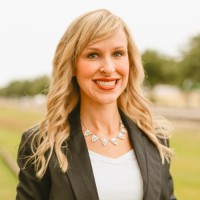 Anastasia Stromgren is a Senior Transportation Analyst of Global Supply Chains at Starbucks, where she is responsible for all inbound, outbound and final mile transportation operations. She brings to this role over a decade of experience working in multi-modal and omni-channel logistics operations including rail, intermodal, full truck load, less than truckload, parcel, and vessels at companies such as Bartlett Grain Co., Ryan Transportation Service, and Smithfield Foods. Anastasia earned a degree in Sociology and an MBA in Operations Management from the University of Missouri – Kansas City. (LinkedIn)
Anastasia Stromgren is a Senior Transportation Analyst of Global Supply Chains at Starbucks, where she is responsible for all inbound, outbound and final mile transportation operations. She brings to this role over a decade of experience working in multi-modal and omni-channel logistics operations including rail, intermodal, full truck load, less than truckload, parcel, and vessels at companies such as Bartlett Grain Co., Ryan Transportation Service, and Smithfield Foods. Anastasia earned a degree in Sociology and an MBA in Operations Management from the University of Missouri – Kansas City. (LinkedIn)
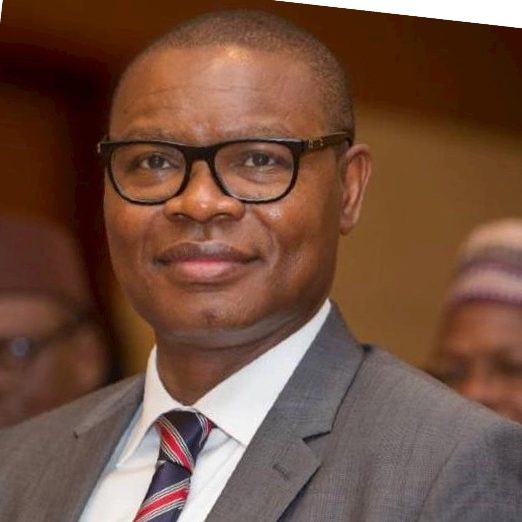 Dr. Aurele Houngbedji is a Financial Risk Management professional with over 20 years of experience and expert knowledge of Economic Capital Management, Best Practices Risk Management and Climate Change Related Financial Risk Management. He leads the Climate Change related Financial Risks Team, and the Research and Knowledge Unit in the Corporate Risk Management Department at the International Finance Corporation. His current research focuses on the integration of climate change-related financial risks and opportunities into risk management, strategy, capital planning and decision-making process. From 2012 to 2016, Dr. Houngbedji served as Special Advisor to the President of Benin where he set up a Delivery Unit to lead an ambitious reforms agenda to improve investment climate, attract private investments and promote Benin around the world as a good investment destination in Africa. Dr. Houngbedji holds a Ph.D. in Mathematical Finance from the University of Pittsburgh. He is an alumnus of the Harvard Kennedy School the Harvard Business School, and the University of Cambridge Institute of Sustainability Leadership. He is a member of the Directors and Chief Risk Officers Group (DCRO). (LinkedIn)
Dr. Aurele Houngbedji is a Financial Risk Management professional with over 20 years of experience and expert knowledge of Economic Capital Management, Best Practices Risk Management and Climate Change Related Financial Risk Management. He leads the Climate Change related Financial Risks Team, and the Research and Knowledge Unit in the Corporate Risk Management Department at the International Finance Corporation. His current research focuses on the integration of climate change-related financial risks and opportunities into risk management, strategy, capital planning and decision-making process. From 2012 to 2016, Dr. Houngbedji served as Special Advisor to the President of Benin where he set up a Delivery Unit to lead an ambitious reforms agenda to improve investment climate, attract private investments and promote Benin around the world as a good investment destination in Africa. Dr. Houngbedji holds a Ph.D. in Mathematical Finance from the University of Pittsburgh. He is an alumnus of the Harvard Kennedy School the Harvard Business School, and the University of Cambridge Institute of Sustainability Leadership. He is a member of the Directors and Chief Risk Officers Group (DCRO). (LinkedIn)
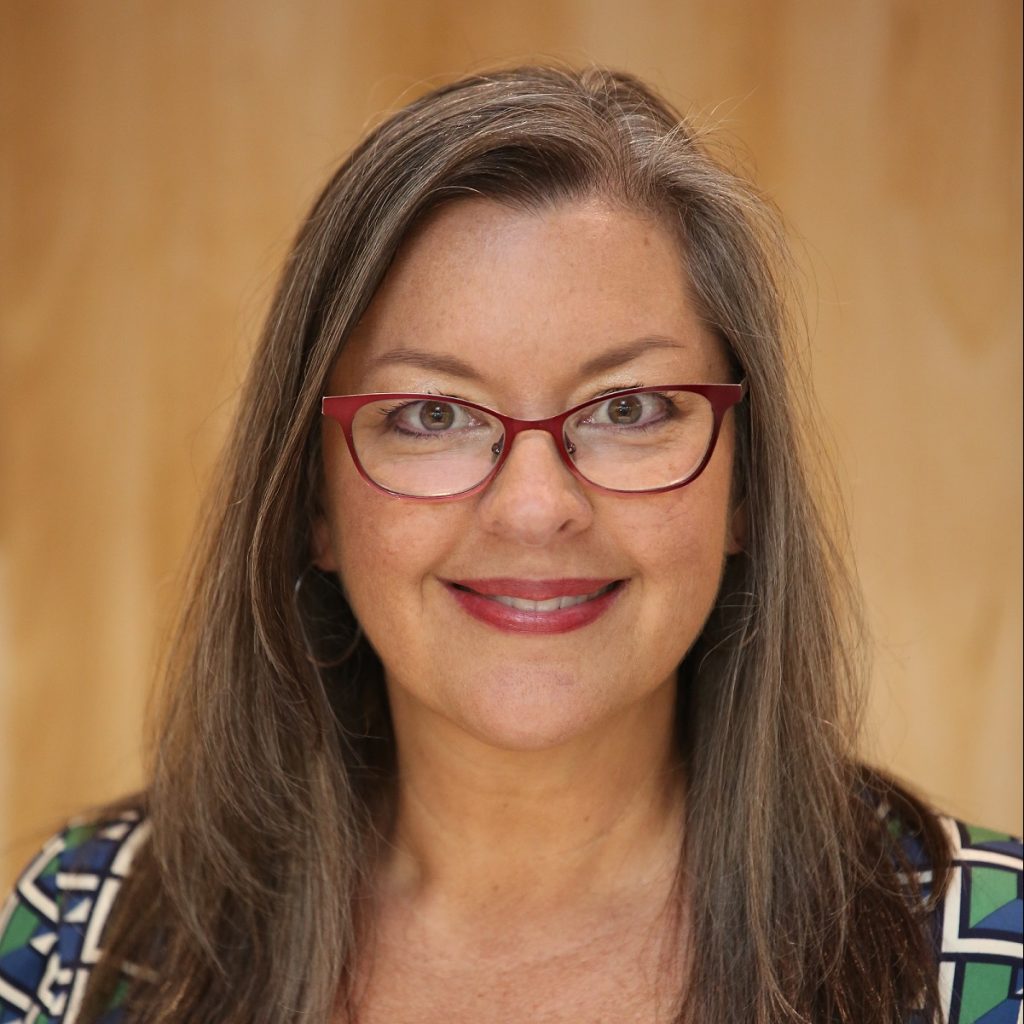 Dr. Aurora Dawn Benton is the Founder and Chief Change Agent of Astrapto LLC, which offers courses, coaching, and consulting to advance sustainability in hospitality, events, travel, and other services industries. She has helped over 120 young professionals launch green teams and perform sustainable procurement audits. Her clients include World Wildlife Fund (Hotel-Kitchen), Centerplate, Baltimore Convention Center, Green Seal (hotel eco-certification), the Events Industry Council, and various hotels and restaurant groups. She is a thought leader and volunteer for industry organizations, including the Events Industry Council and the Global Sustainable Tourism Council. Aurora has a doctorate degree in Social Impact Management from Walden University. (LinkedIn)
Dr. Aurora Dawn Benton is the Founder and Chief Change Agent of Astrapto LLC, which offers courses, coaching, and consulting to advance sustainability in hospitality, events, travel, and other services industries. She has helped over 120 young professionals launch green teams and perform sustainable procurement audits. Her clients include World Wildlife Fund (Hotel-Kitchen), Centerplate, Baltimore Convention Center, Green Seal (hotel eco-certification), the Events Industry Council, and various hotels and restaurant groups. She is a thought leader and volunteer for industry organizations, including the Events Industry Council and the Global Sustainable Tourism Council. Aurora has a doctorate degree in Social Impact Management from Walden University. (LinkedIn)
 Caroline Davenport joins the Bethesda Green team as the Innovation Lab’s Impact Intern. She will graduate in December 2021 from the University of Maryland with a Bachelor of Arts in Public Policy and minors in Spanish and Sustainability. Previously, she interned at the National Governors Association researching US surface transportation infrastructure permitting and at the World Resources Institute researching digital agricultural advisory services for smallholder farmers in developing countries. She is passionate about creating positive social change, and is particularly interested in sustainable development. Caroline will facilitate the session on Green Business Certifications. (LinkedIn)
Caroline Davenport joins the Bethesda Green team as the Innovation Lab’s Impact Intern. She will graduate in December 2021 from the University of Maryland with a Bachelor of Arts in Public Policy and minors in Spanish and Sustainability. Previously, she interned at the National Governors Association researching US surface transportation infrastructure permitting and at the World Resources Institute researching digital agricultural advisory services for smallholder farmers in developing countries. She is passionate about creating positive social change, and is particularly interested in sustainable development. Caroline will facilitate the session on Green Business Certifications. (LinkedIn)
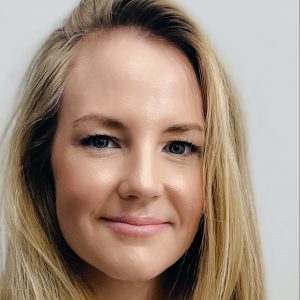 Catherine Griffin is the founder and CEO of ImpactableX, where she works with social entrepreneurs and impact funds to define, model, value and forecast social and environmental impact as a derivative of sales, allowing them to effectively execute on their mission, and leverage impact to amplify growth. Prior to launching ImpactableX, Catherine served as Managing Director at an award-winning impact accelerator, GoodCompany Ventures, where she built multiple global, cross-sector innovation consortiums designed to catalyze and accelerate the application of new technologies to address the world’s most pressing challenges. In 2014, she led the execution of FastFWD, an award-winning partnership between the City of Philadelphia, Bloomberg Philanthropies and the Wharton Social Impact Initiative, designed to address the City’s public safety challenges. Leveraging the success of this work, Catherine then built a partnership with the Obama Administration’s Climate Data Initiative in 2017 called Climate Ventures 2.0. Catherine serves as a judge for leading pitch competitions nationwide and a preeminent resource on Impact Measurement & Management for accelerators and funds around the world. She has a BA from the University of Pennsylvania and is an Adjunct Professor at Temple University. (LinkedIn)
Catherine Griffin is the founder and CEO of ImpactableX, where she works with social entrepreneurs and impact funds to define, model, value and forecast social and environmental impact as a derivative of sales, allowing them to effectively execute on their mission, and leverage impact to amplify growth. Prior to launching ImpactableX, Catherine served as Managing Director at an award-winning impact accelerator, GoodCompany Ventures, where she built multiple global, cross-sector innovation consortiums designed to catalyze and accelerate the application of new technologies to address the world’s most pressing challenges. In 2014, she led the execution of FastFWD, an award-winning partnership between the City of Philadelphia, Bloomberg Philanthropies and the Wharton Social Impact Initiative, designed to address the City’s public safety challenges. Leveraging the success of this work, Catherine then built a partnership with the Obama Administration’s Climate Data Initiative in 2017 called Climate Ventures 2.0. Catherine serves as a judge for leading pitch competitions nationwide and a preeminent resource on Impact Measurement & Management for accelerators and funds around the world. She has a BA from the University of Pennsylvania and is an Adjunct Professor at Temple University. (LinkedIn)
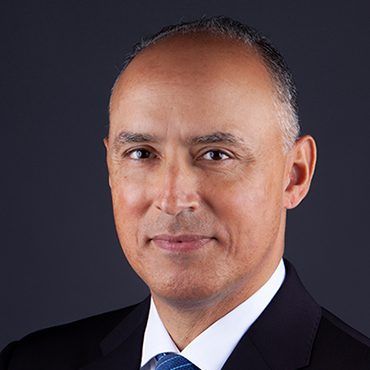 Darius Nassiry is a change and sustainable finance expert with experience in investment banking, infrastructure finance, international development, clean and renewable energy, and technology innovation and deployment. He is currently a director at Climate Finance Advisors. Darius has previously served as a consultant to the Department of Energy Advanced Research Projects Agency–Energy (ARPA-E), a principal with Rocky Mountain Institute (RMI), as a research associate with the Overseas Development Institute (ODI) and as a visiting fellow with the Center for Global Development (CGD). He has also advised the Asian Development Bank (ADB), Climate Bonds Initiative, and the German development agency (GIZ) on green finance. Darius served as advisor to the Director-General and head of international cooperation at the Global Green Growth Institute (GGGI) and led country teams at the Millennium Challenge Corporation (MCC), where he developed investment programs in Asia and launched the agency’s climate change initiative. Earlier in his career he worked as an investment banker for energy and utilities sector clients in the U.S., UK/Europe, and Japan. He began his career as a U.S. diplomat in Mexico and Kenya. Darius holds a master’s degree from the Woodrow Wilson School of Public and International Affairs at Princeton University and a Bachelor of Arts from Carleton College. (LinkedIn)
Darius Nassiry is a change and sustainable finance expert with experience in investment banking, infrastructure finance, international development, clean and renewable energy, and technology innovation and deployment. He is currently a director at Climate Finance Advisors. Darius has previously served as a consultant to the Department of Energy Advanced Research Projects Agency–Energy (ARPA-E), a principal with Rocky Mountain Institute (RMI), as a research associate with the Overseas Development Institute (ODI) and as a visiting fellow with the Center for Global Development (CGD). He has also advised the Asian Development Bank (ADB), Climate Bonds Initiative, and the German development agency (GIZ) on green finance. Darius served as advisor to the Director-General and head of international cooperation at the Global Green Growth Institute (GGGI) and led country teams at the Millennium Challenge Corporation (MCC), where he developed investment programs in Asia and launched the agency’s climate change initiative. Earlier in his career he worked as an investment banker for energy and utilities sector clients in the U.S., UK/Europe, and Japan. He began his career as a U.S. diplomat in Mexico and Kenya. Darius holds a master’s degree from the Woodrow Wilson School of Public and International Affairs at Princeton University and a Bachelor of Arts from Carleton College. (LinkedIn)
 Jennifer Woofter is the founder and president of Strategic Sustainability Consulting (SSC), where she has worked with more than 50 clients on projects including Green Auditing, Sustainability Planning, Carbon Footprint Analysis, Stakeholder Engagement, Training and Facilitation, and Sustainability Reporting, and currently manages the SSC Consultant Network, an association of more than 650 professionals with expertise in virtually every area of sustainability, leading it to become a B Corporation and an EPA EnergyStar Partner. Jennifer is a member of the International Society of Sustainability Professionals (ISSP) and Net Impact, and speaks regularly on panels, working groups, webinars and at conferences. Prior to starting SSC, Jennifer worked for Calvert Group, the nation’s largest family of socially responsible mutual funds. She worked directly with portfolio managers, and oversaw the ethical decision-making process for the $36 million Calvert Social Index Fund. She also spearheaded the firm’s transparency and disclosure initiative, encouraging companies to produce sustainability reports using the Global Reporting Initiative (GRI). Jennifer holds a Bachelor of Science degree in Political Science from the University of Oregon, and a Master of Arts in Political Science from Virginia Tech. She also holds a Master of Science in Strategic Leadership Towards Sustainability from the Blekinge Institute of Technology in Karlskrona, Sweden, where she studied under Karl-Henrik Robert, founder of The Natural Step. (LinkedIn)
Jennifer Woofter is the founder and president of Strategic Sustainability Consulting (SSC), where she has worked with more than 50 clients on projects including Green Auditing, Sustainability Planning, Carbon Footprint Analysis, Stakeholder Engagement, Training and Facilitation, and Sustainability Reporting, and currently manages the SSC Consultant Network, an association of more than 650 professionals with expertise in virtually every area of sustainability, leading it to become a B Corporation and an EPA EnergyStar Partner. Jennifer is a member of the International Society of Sustainability Professionals (ISSP) and Net Impact, and speaks regularly on panels, working groups, webinars and at conferences. Prior to starting SSC, Jennifer worked for Calvert Group, the nation’s largest family of socially responsible mutual funds. She worked directly with portfolio managers, and oversaw the ethical decision-making process for the $36 million Calvert Social Index Fund. She also spearheaded the firm’s transparency and disclosure initiative, encouraging companies to produce sustainability reports using the Global Reporting Initiative (GRI). Jennifer holds a Bachelor of Science degree in Political Science from the University of Oregon, and a Master of Arts in Political Science from Virginia Tech. She also holds a Master of Science in Strategic Leadership Towards Sustainability from the Blekinge Institute of Technology in Karlskrona, Sweden, where she studied under Karl-Henrik Robert, founder of The Natural Step. (LinkedIn)
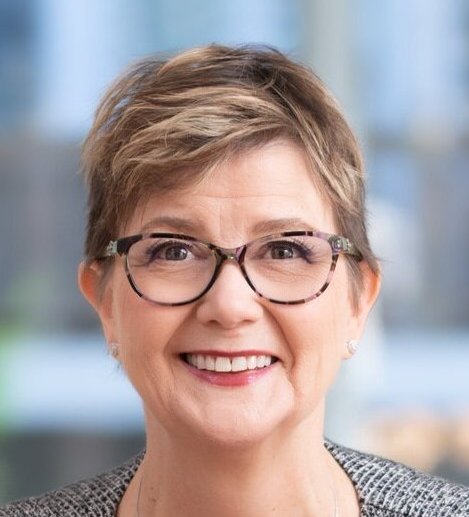
Julia Craighill is the founder and president of Ensight. She is a driven, award-winning sustainability expert committed to helping organizations build value through green strategies. With more than three decades of experience in architecture, construction and sustainability, she collaborates with her clients to align green goals with business goals. Julia is the first certified BREEAM USA In-Use Assessor in the state of Maryland, and one of the first in the United States. Her ability to navigate the entire process—from registration through certification—has made her an indispensable partner for owners, managers and occupiers of existing buildings. A frequent speaker and prolific author on issues of sustainability and resiliency, Julia is known for her solid, pragmatic guidance that helps organizations make the leap from good intentions to long-term, profitable performance. (LinkedIn)
 Kim Goddu-Alexander is the Director of Bethesda Green’s Be Green Living and B Corp Programs. In this role, she provides program management and technical environmental expertise for urban planning activities, stormwater projects, and sustainable agriculture awareness. Previously, Kim served on the NH Granite State Future Climate Change and Energy Efficiency Technical Advisory Committee and was a Board President of the Merrimack River Watershed Council. Kim holds an MS in Environmental Science with a concentration in Sustainable Development and Climate Change from Antioch University. (LinkedIn)
Kim Goddu-Alexander is the Director of Bethesda Green’s Be Green Living and B Corp Programs. In this role, she provides program management and technical environmental expertise for urban planning activities, stormwater projects, and sustainable agriculture awareness. Previously, Kim served on the NH Granite State Future Climate Change and Energy Efficiency Technical Advisory Committee and was a Board President of the Merrimack River Watershed Council. Kim holds an MS in Environmental Science with a concentration in Sustainable Development and Climate Change from Antioch University. (LinkedIn)
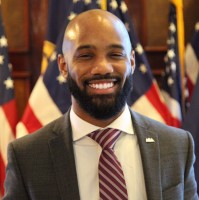 Maurice Nick is a Supply Chain Optimization Manager at Tata Consumer Products. Highly focused with a comprehensive understanding of finance, procurement and the supply chain, Maurice boasts a consistent and proven track record of successfully employing best business practices that improve efficiency and reduce operating costs while increasing performance, on tight time scales and within budget. Maurice is committed to identifying and implementing continuous improvements in the supply chain with key skills in improving supplier programs, establishing robust processes, financial forecasting, and strategic supplier management. Before joining Tata, Maurice was a Supply Planning Manager at Stanley Black & Decker, Inc. Previously he held various roles at Northrop Grumman including Supply Chain Program Planner, Financial Analyst, and Supply Chain Procurement Analyst. Maurice earned his MBA and Masters and Bachelors in Logistics, Materials, and Supply Chain Management from the University of Maryland. (LinkedIn)
Maurice Nick is a Supply Chain Optimization Manager at Tata Consumer Products. Highly focused with a comprehensive understanding of finance, procurement and the supply chain, Maurice boasts a consistent and proven track record of successfully employing best business practices that improve efficiency and reduce operating costs while increasing performance, on tight time scales and within budget. Maurice is committed to identifying and implementing continuous improvements in the supply chain with key skills in improving supplier programs, establishing robust processes, financial forecasting, and strategic supplier management. Before joining Tata, Maurice was a Supply Planning Manager at Stanley Black & Decker, Inc. Previously he held various roles at Northrop Grumman including Supply Chain Program Planner, Financial Analyst, and Supply Chain Procurement Analyst. Maurice earned his MBA and Masters and Bachelors in Logistics, Materials, and Supply Chain Management from the University of Maryland. (LinkedIn)
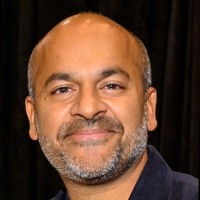 Raj Aggarwal founded Provoc in 1999 and serves as President and Lead Strategist. With over twenty years of experience as a communications and technology strategist, he has worked with more than 400 nonprofits and socially responsible businesses on a variety of projects including internal and external branding, marketing and customer engagement. Raj keeps Provoc rooted in empathy-driven work by forging partnerships with values-aligned, visionary leaders and has led workshops and talks at dozens of national conferences. He serves on the boards of Think Local First, DC and Ben’s Chili Bowl Foundation, and recently shared his personal story on NPR. (LinkedIn)
Raj Aggarwal founded Provoc in 1999 and serves as President and Lead Strategist. With over twenty years of experience as a communications and technology strategist, he has worked with more than 400 nonprofits and socially responsible businesses on a variety of projects including internal and external branding, marketing and customer engagement. Raj keeps Provoc rooted in empathy-driven work by forging partnerships with values-aligned, visionary leaders and has led workshops and talks at dozens of national conferences. He serves on the boards of Think Local First, DC and Ben’s Chili Bowl Foundation, and recently shared his personal story on NPR. (LinkedIn)
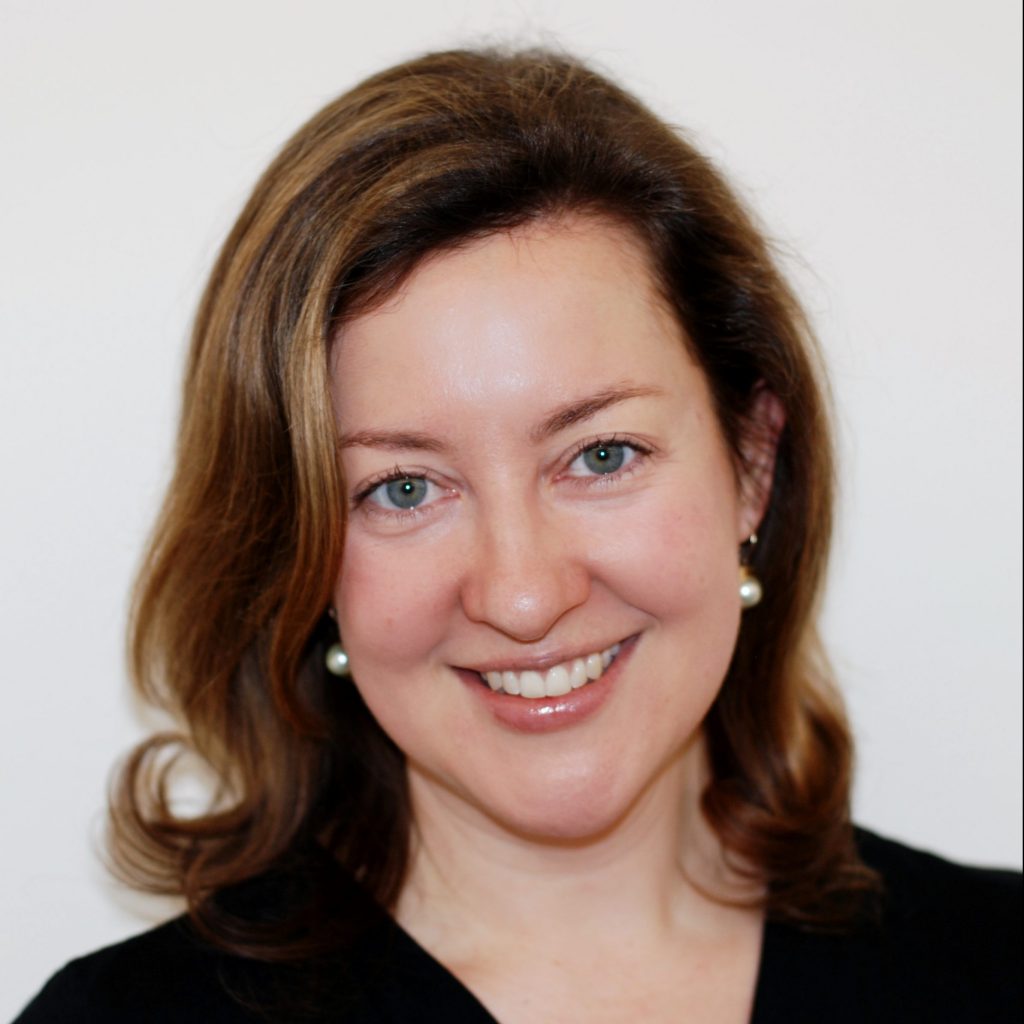 Verena Radulovic is Vice President for Business Engagement at the Center for Climate and Energy Solutions where she works with businesses, policymakers and other stakeholders to advance business action on climate mitigation and resilience and galvanize business support for ambitious, practical climate policies. She manages the Business Environmental Leadership Council (BELC), one of the largest U.S.-based cross-sectoral groups of corporations focused on addressing climate change and supporting mandatory climate policy. Verena oversees C2ES’ work on climate-related financial risk disclosure, supply chains, resilience and the annual Climate Leadership Conference. Previously, she led the Center for Corporate Climate Leadership at the U.S. Environmental Protection Agency (EPA), managed ENERGY STAR’s consumer electronics portfolio, developed an initiative to address potent greenhouse gases in the electronics industry’s supply chain, helped companies understand green power purchasing options via EPA’s Green Power Partnership, created pathways for smaller suppliers to report their GHG emissions to the U.S. government, and helped develop industry standards for more environmentally sustainable products. Ms. Radulovic has an Msc. in environmental policy and international development from the London School of Economics and Political Science and a B.A. in political science from Indiana University. (LinkedIn)
Verena Radulovic is Vice President for Business Engagement at the Center for Climate and Energy Solutions where she works with businesses, policymakers and other stakeholders to advance business action on climate mitigation and resilience and galvanize business support for ambitious, practical climate policies. She manages the Business Environmental Leadership Council (BELC), one of the largest U.S.-based cross-sectoral groups of corporations focused on addressing climate change and supporting mandatory climate policy. Verena oversees C2ES’ work on climate-related financial risk disclosure, supply chains, resilience and the annual Climate Leadership Conference. Previously, she led the Center for Corporate Climate Leadership at the U.S. Environmental Protection Agency (EPA), managed ENERGY STAR’s consumer electronics portfolio, developed an initiative to address potent greenhouse gases in the electronics industry’s supply chain, helped companies understand green power purchasing options via EPA’s Green Power Partnership, created pathways for smaller suppliers to report their GHG emissions to the U.S. government, and helped develop industry standards for more environmentally sustainable products. Ms. Radulovic has an Msc. in environmental policy and international development from the London School of Economics and Political Science and a B.A. in political science from Indiana University. (LinkedIn)
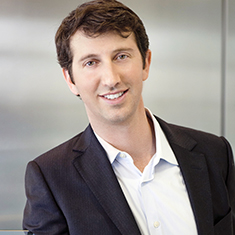 Zachary Kaplan is Vice President at DAI Sustainable Business Group. He joined DAI in 2012 as a technical specialist supporting the organization’s work globally in small and medium-sized enterprise development, infrastructure, public-private partnerships, and extractive industries. In 2015, he launched the DAI Sustainable Business Group (SBG) to lead the firm’s engagement with commercial clients seeking to invest and expand in growth markets around the world while at the same time delivering development benefits in terms of local jobs, local value creation, and local enterprise development. Previously, Zachary worked for the World Bank on infrastructure, extractive energy issues, private sector development, natural resource concession management, public-private finance, and business-friendly policy regimes related to local content and supply chain management. He has advised governments including those of Canada, Mexico, Mozambique, and Romania, and multinational companies such as Chevron, ExxonMobil, Shell, and Walmart. He co-facilitates DAI’s Local Content Master Class and serves on the Advisory Board for Mining Shared Value and the Georgetown University McCourt School’s Policy in Action, which he co-founded in 2007. Zachary earned a Masters in Public Policy in International Policy and Development from Georgetown University, and a BA in history and Spanish literature from Cornell University. (LinkedIn)
Zachary Kaplan is Vice President at DAI Sustainable Business Group. He joined DAI in 2012 as a technical specialist supporting the organization’s work globally in small and medium-sized enterprise development, infrastructure, public-private partnerships, and extractive industries. In 2015, he launched the DAI Sustainable Business Group (SBG) to lead the firm’s engagement with commercial clients seeking to invest and expand in growth markets around the world while at the same time delivering development benefits in terms of local jobs, local value creation, and local enterprise development. Previously, Zachary worked for the World Bank on infrastructure, extractive energy issues, private sector development, natural resource concession management, public-private finance, and business-friendly policy regimes related to local content and supply chain management. He has advised governments including those of Canada, Mexico, Mozambique, and Romania, and multinational companies such as Chevron, ExxonMobil, Shell, and Walmart. He co-facilitates DAI’s Local Content Master Class and serves on the Advisory Board for Mining Shared Value and the Georgetown University McCourt School’s Policy in Action, which he co-founded in 2007. Zachary earned a Masters in Public Policy in International Policy and Development from Georgetown University, and a BA in history and Spanish literature from Cornell University. (LinkedIn)
Thank you to our Sponsors!


